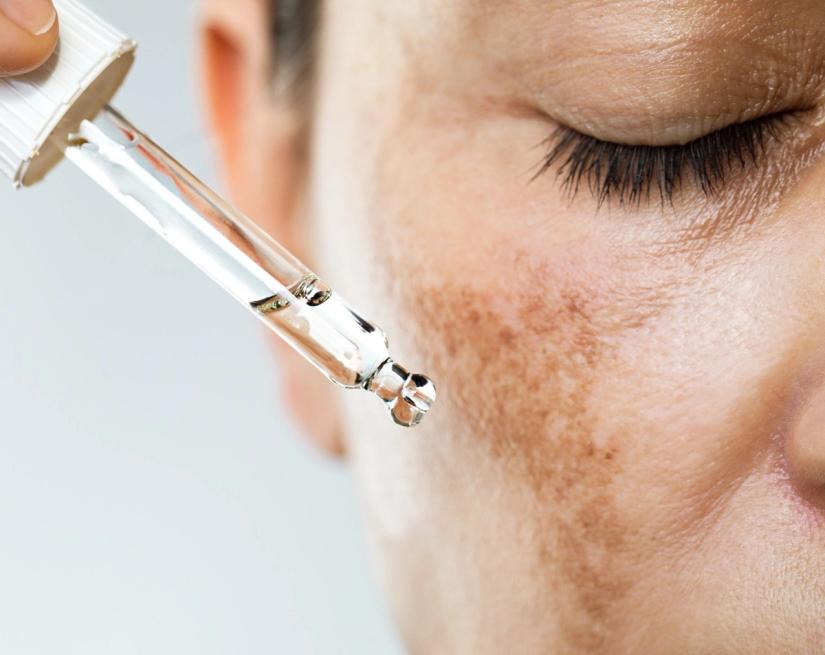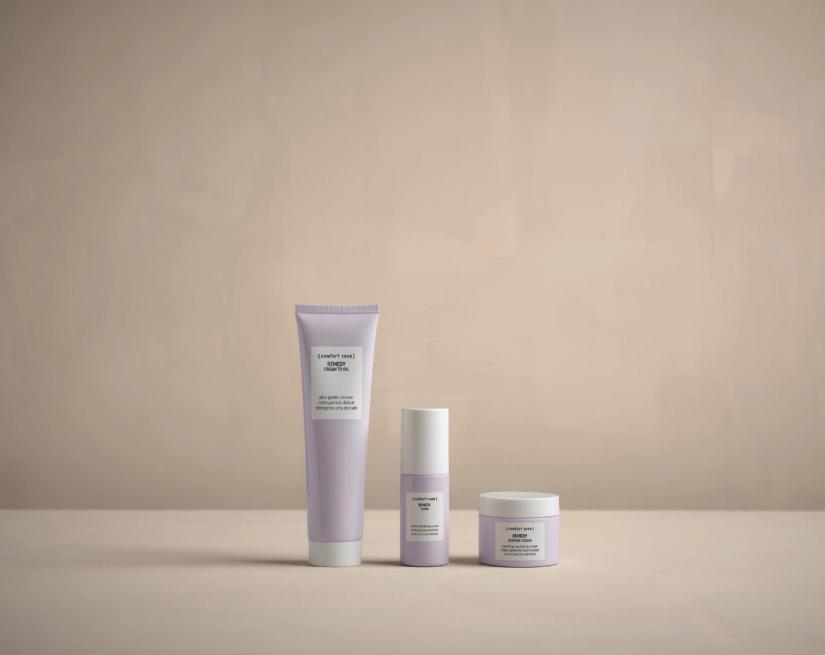skin care
The Importance of Vitamin D and Sunlight for Healthy Skin
Eve Mérinville | Corporate RD Excellence & SC RD and Innovation Director
8 min read

Is the Sun Good for Your Skin? The Importance of Vitamin D and Sunlight for Healthy Skin
Whether you are spending a relaxing day at the beach or enjoying an afternoon walk with friends, there’s something truly wonderful about feeling the warm embrace of the sun on your skin. However, in today's world, we're often reminded to be cautious of sun exposure by covering up with sunscreen and seeking shade. While concerns about the sun's potential harm to our skin are valid, it's crucial to also recognize its profound impact on our overall wellness.
The sun offers a natural source of vitamin D, crucial for strong bones, a robust immune system, and a healthy mood. Still, moderation is key due to the potential harm of excessive sun exposure, including sunburn, premature aging, and skin cancer. We recognize the need for this balance at [ comfort zone ] and are committed to conscious skin science. You can learn more about this in our Summer Skincare Guide.
So, with all of this in mind, let’s delve into the age-old question: Is the sun actually beneficial for your skin? Perhaps it's time to reconsider how we can harness its advantages.
"Safe sun is smart sun! A little bit of natural sunlight benefits our mood and healthy vitamin D levels, but being aware of your own skin type and sunburn risk is most important... Stay protected with sunscreen, reparative skin care products, sunglasses and protective clothing!"
Elisabeth Nehme - Global Brand Ambassador Comfort Zone
The Sunshine and Our Skin
For better and for worse, the sun can have a significant impact on our skin. Understanding both its positive and negative effects is crucial to maintaining a healthy, radiant complexion.
Positive Effects of the Sun
- Vitamin D: When your skin is exposed to the sun’s rays, it triggers the production of vitamin D in your body. This nutrient is essential for the health of your bones, blood cells, and immune system.
- Better Sleep: Exposure to natural sunlight can help regulate sleep-wake cycles, resulting in a better night’s sleep. It helps synchronize your circadian rhythm (your internal biological clock) signaling daytime and enhancing daytime alertness, which, in turn, promotes better sleep at night.
- Emotional Well-Being: When exposed to sunlight, your brain begins to produce serotonin. Higher serotonin levels are associated with improved mood, reduced stress, and increased energy.
Negative Effects of the Sun
- Sunburn: Though temporary, sunburn can cause redness, peeling, and itching of the skin. Over time, exposure to the sun’s UV rays can accelerate skin aging. “The more sun exposure you have, the earlier your skin ages,” says Dr. Barnett S. Kramer, a cancer prevention expert at NIH.
- Skin Cancer: Too much sun exposure can raise your risk for skin cancer, one of the most common forms of cancer in the United States. Limit your time in the sun and always remember to apply SPF.

The Science Behind Sun Exposure and Skin
To understand the intricate relationship between sun exposure and skin health, we must look closely into the scientific aspects. This includes exploring the roles of UVA and UVB rays, the risk of skin cancer, and the crucial importance of protection against these harmful rays while maintaining your skin's health.
UVA and UVB Rays
UVA and UVB are the two types of ultraviolet rays that reach the earth’s surface. While both types can damage the skin, there is a difference between the two. UVA rays have a longer wavelength that reaches deep into the layers of the skin, leading to photoaging (the premature aging of the skin). UVB rays have a shorter wavelength and are responsible for surface-level damage, like sunburn.
Skin Cancer
Excessive sun exposure can increase the risk of different types of skin cancer. Basal cell and squamous cell carcinoma are most commonly diagnosed in people and are rarely life-threatening. Melanoma is less common but more serious.
While the sun has its benefits, maintaining a healthy balance between sun exposure and protection is vital. Knowledge is power. You can still enjoy the sun and protect your skin.
Is the Sun Good for Your Skin? Unpacking the Truth
If the sun is both beneficial and harmful, then could it possibly be considered good for our skin? The answer is yes but in moderation. Limited exposure to natural sunlight has been linked to the production of vitamin D, better sleep, and increased moods. However, excessive or unprotected sun exposure can lead to sun damage, premature aging, and risk of skin cancer.
Additionally, it is important to keep your skin type in mind when enjoying the sun. Skin types fall on a spectrum from fair to dark, each responding differently to sun exposure. Fair skin is more prone to sunburn, while darker skin contains more melanin, blocking out damaging UV rays up to a certain point.
Tanning
From sunbathing to tanning beds, the quest for a golden tan has a history dating back to the early 1900s. Though tanning is thought to be beneficial, it is actually the skin’s response to sun damage. Once the skin is exposed to UV rays, it increases the production of melanin in an attempt to protect your skin. However, you don’t have to forgo the warm and soothing experience of laying in the sun, just don’t forget the SPF.
Expert Advice: Sun Exposure and Skincare
You can still enjoy the benefits that come with sun exposure while prioritizing your skin’s overall health and well-being. One of the foundations for proper skincare is understanding the importance of SPF. It should be worn every day, regardless of how much time you spend outdoors.
Choose a sunscreen with a high sun protection factor (SPF) of 30 to limit sun exposure during peak hours and seek shade whenever possible.
Additionally, sun protection goes beyond sunscreen. Consider wearing protective clothing and accessories when spending extensive hours in the sun. Wide-brim hats, sunglasses, and clothing with an ultraviolet protection factor (UPF) will help reduce your risk of sun damage.
Comfort Zone ’s Approach to Sun and Skin
- Comfort Zone creates products that go beyond sun protection. With a focus on conscious skincare, we work to provide clean, science-driven formulas, highly concentrated in natural-origin and high-tech ingredients. Here's a selection of our products designed to nurture and protect your skin under the sun.
- Aftersun Care: Refresh and soothe your skin with our Aftersun Collection, designed to moisturize and relieve redness after sun exposure.
- Remedy Face Treatment: This facial treatment is curated with a prebiotic from sugar beets and marula oil to soothe redness and irritation, renew the skin, and reinforce the skin’s barrier.
- Dark Spot Remover Creams & Treatments: If you have spent a long duration of your life outdoors, consider using a dark spot remover cream or treatment to help reduce the appearance of sunspots and reduce the skin’s signs of aging.
Personalized Solutions for Sun Protection
Everyone’s skin has unique requirements, especially when it comes to sun protection. Fair-skinned individuals, those with low vitamin D levels, and other skin conditions like eczema, rosacea, or acne may be at higher risk for sun damage. A one-size-fits-all approach may not be suitable for everyone. Comfort Zone recognizes the importance of personalized skincare solutions, offering a range of products designed to help fortify your skin so it can remain youthful, firm, and radiantly glowing.
Answer: When It Comes To The Sun, Moderation Is Key
While sunlight is essential for our health and well-being, overexposure can result in sun damage, including sunburn, premature aging, and skin cancer.
By incorporating Comfort zone's consciously designed products into your skincare routine, you can maintain the right balance between embracing the sun's benefits and protecting your skin's health. You don’t have to be afraid of the sun, just remember that moderation is key.




